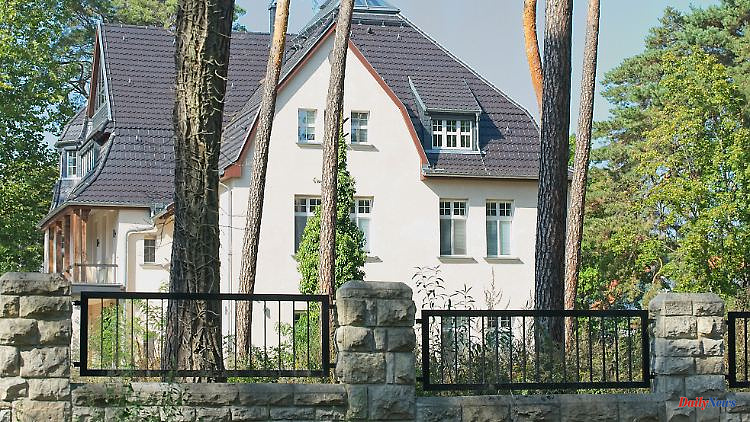This is where it starts and where it ends: Whoever owns a property usually wants to narrow it down to the centimetre. The enclosure is often mentioned in this context. What exactly is this about - questions and answers.
What is the purpose and purpose of property fencing?
"Jurisdiction classifies as an enclosure a system on or on the property line that shields a property from the outside," says Annett Engel-Lindner, legal advisor at the German Real Estate Association. These include so-called dead enclosures such as walls or fences and so-called living enclosures such as hedges.
With enclosures, the private space or the property can be clearly delimited. They offer privacy protection from prying eyes. They are also safeguards against unauthorized entry by people or animals. "A fence around the entire property creates security if you have small children or animals yourself," says Engel-Lindner. Noise, wind or street dirt can also be fended off with enclosures.
Are property owners obliged to make a fence?
"This is regulated differently depending on the federal state," says Julia Wagner from the house owners' association
In these federal states there is an obligation to fence in if the neighbor demands it: Berlin and Brandenburg (in places where fences are considered customary), Baden-Württemberg (in the outskirts), Hesse, North Rhine-Westphalia, Lower Saxony, Rhineland -Palatinate, Saarland, Saxony-Anhalt, Schleswig-Holstein and Thuringia. "Some federal states do not even have an obligation to enclose," says Wagner. These include Baden-Württemberg (inner city location), Bavaria, Bremen, Hamburg, Mecklenburg-Western Pomerania and Saxony.
What to do if the neighbor doesn't want an enclosure and can also come up with good reasons for this?
If the respective state law stipulates that a fence must be made at the request of a neighbor, the other neighbor must accept this. At the same time, there is a right to the removal of a prescribed enclosure only under strict conditions. For example, if a garden wall is two meters high instead of the local fence, which is one meter high.
There is also a right to removal if, for example, a wall is so impregnated that it emits vapors that are hazardous to health. "On the other hand, there is no right to removal or modification if the neighbor simply finds the fence, which is customary in the area, ugly," says Engel-Lindner.
Can you put a fence, a hedge or a wall directly on the property line?
This also depends largely on the regulations in the respective federal state. "Basically, however, structures or plants should be placed at a distance from the property line," says Wagner. If something is placed directly on the border, it is a border building or planting that the neighbor must agree to.
What is the maximum height allowed for the enclosure?
The maximum heights and the type of enclosure are not uniformly regulated in the federal states, as Engel-Lindner explains. In Berlin and Brandenburg, for example, a 1.25 meter high wire mesh fence has to be erected where it is customary to fence in. In Saxony-Anhalt it is a fence up to 2 meters high and in NRW a wall or fence 1.20 meters high.
What to do if you suspect a wall or fence has been erected incorrectly?
First of all, make sure to talk to your neighbor. Together you can then recreate the property boundaries on plans or using boundary stones and, if in doubt, look for solutions. To determine the property line, there are special markings - so-called boundary stones. "They are usually made of concrete, stone or plastic and anchored deep in the ground," says Engel-Lindner. The actual boundary is the straight line between one stone and the other.
It doesn't matter how you get along with your neighbors when it comes to the property line: "At best, you should avoid legal escalations," advises Julia Wagner. After all, even after a judicial clarification, you still have to get along with your neighbor, and peacefully at that.
(This article was first published on Monday, February 27, 2023.)












